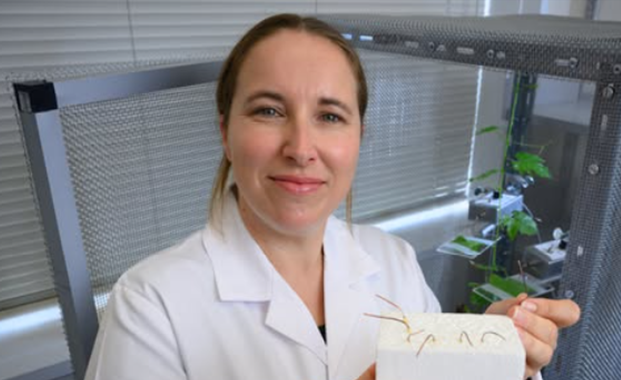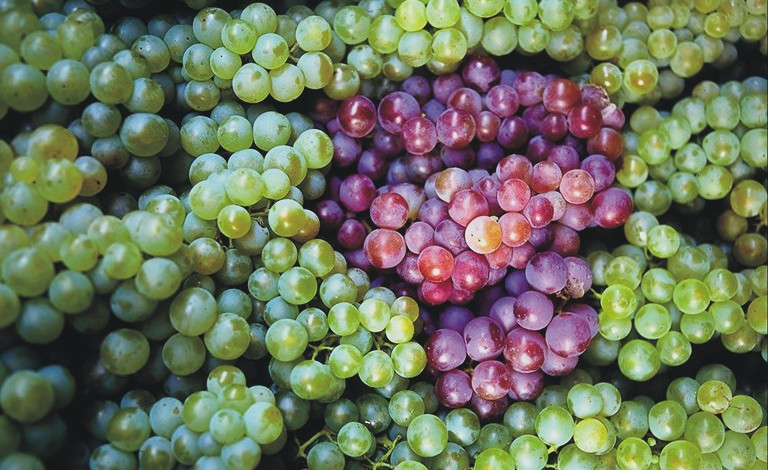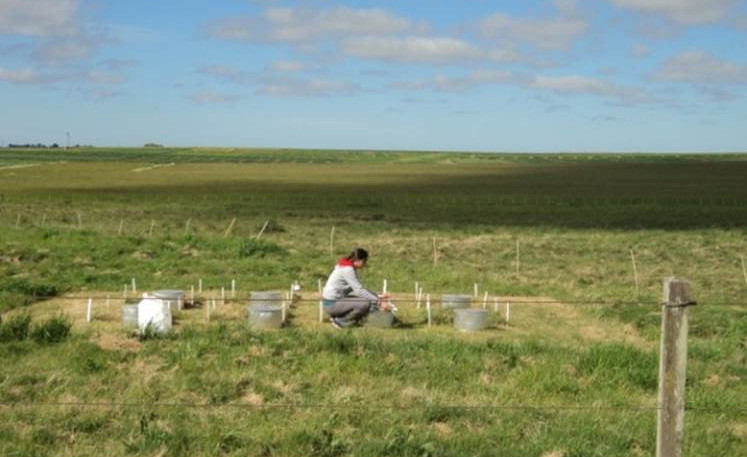Congratulations to our newly appointed professors
15 October 2021 | News
We are delighted to announce that seven Lincoln University academics have been appointed to the position of professor in 2022.
Each an expert in their field of research, the individuals play leading roles in the University’s drive towards national and international excellence. The appointments reflect their demonstrable achievements in four key areas:
- Research and scholarship
- Teaching and facilitation of learning
- Service to the University
- Service to the community, profession or academic disciplines
The promotions take effect from 1 January 2022.
Listed in alphabetical order.
Amanda BlackBioprotection AotearoaAmanda is of Tūhoe, Whakatōhea and Te Whanau a Āpanui descent. Since starting her own research group focusing on soil and forest health at Lincoln University in 2015, she has emerged as a recognised leader in soil health and biosecurity, as demonstrated by her recent appointment as co-director for Bioprotection Aotearoa (formerly BPRC), a Tertiary Education Commission funded Centre of Research Excellence (CoRE) that was successfully funded in 2020. She brought together a team of excellent researchers and guided the design of the research programme that spans indigenous knowledge, ecology, molecular science, and governance that are united under a Māori values framework Te Taiao-a-rangi. Her leadership in biosecurity research, especially kauri dieback and Māori engagement has been recognised in numerous national awards, including Māori Television Matariki Award, Te Tupu-ā-Rangi for Health and Science (2019) and the Ministry for Primary Industries Biosecurity Award for an Emerging Leader (2018). Since starting at Lincoln, Amanda’s productivity has been recognised via successful leadership of considerable contestable research funding including Marsden and MBIE. She has co-authored key published findings from recent work on kauri dieback and land fragmentation has resulted in significant national and international media attention including opinion pieces in Science and Nature. Research profile Amanda Black |
|
Anita WrefordAgribusiness and Economics Research Unit (AERU)Anita is currently an Associate Professor in the AERU, which is where she completed her PhD in 2007. Since then Anita has worked in several research institutes and policy environments both in New Zealand and the UK including the internationally renowned Tyndall Centre at the University of East Anglia. Anita’s research has focused on climate change adaptation and her expertise in this area is reflected through her roles as lead author on two Intergovernmental Panel on Climate Change (IPCC) reports - the Special Report on Climate Change and Land (2019) and the Australasia chapter of the IPCC Sixth Assessment Report (due 2022). She leads the Deep South National Science Challenge’s Impacts and Implications Programme, shaping the adaptation research direction and investment in New Zealand. Anita has worked closely with policymakers on climate change both at national level and local government and conducted work for the EU Commission, the OECD and the New Zealand, Scottish and UK Governments. Anita currently leads four research projects within the area of climate change adaptation and is collaborating on several others. She supervises a cohort of PhD students across several research programmes and institutions. Anita has recently joined the Editorial Board of the Australian Journal of Agricultural and Resource Economics and is regularly invited to speak to academic, industry and community groups on topics relating to climate change. Research profile Anita Wreford |
|
Eirian JonesDepartment of Pest Management and ConservationEirian is an Applied Plant Pathologist whose research and teaching focusses on informing the development of sustainable control strategies to provide solutions for the Agricultural and Horticultural cropping industries. Her main research focus is in determining the factors influencing infection and disease development of plant pathogens with a particular focus on woody trunk and root pathogens of grapevines and other horticultural crops. This involves identifying the pathogen species involved, with particular emphasis on identification of pathogens involved in disease complexes such as grapevine trunk disease, and the effect of abiotic and biotic factors on disease expression. This includes investigating the role of beneficial microorganisms in disease suppression and improved plant growth. Her recent work focuses on unravelling the structure and function of plant associated microbial communities (both endophytes and rhizosphere associated) and the factors affecting these communities in relation to plant health and productivity. She is also the immediate Past President of the New Zealand Plant Protection Society and Chair of the AGLS faculty postgraduate research committee. Research profile Eirian Jones |
|
Jim MortonDepartment of Wine Food & Molecular BiosciencesJim is a protein biochemist with a focus on modifications of proteins of economic interest. With 104 peer-reviewed Journal articles to date, most of his recent research has been in understanding the mechanisms that lead to high quality red meat. His future programmes will apply that knowledge to developing the high quality alternative protein sources that will be needed to feed a hungry world. He has been an academic at Lincoln University for over 30 years. During this time he has held significant management roles including Head of the Department of Wine, Food and Molecular Biosciences and currently as Acting Dean of the Faculty of Agriculture and Life Sciences since 2021. Jim has been an active supervisor with 29 PhDs and 10 Masters students completing over 25 years and is currently supervising three PhDs as main supervisor and three as Associate. Jim is currently a distinguished Professor of the Institute of Food Science and Technology Chinese Academy of Agricultural Sciences. He is also a member of the New Zealand organising committee for the International Congress of Meat Science and Technology; member of the New Zealand Society of Biochemistry and Molecular Biology; member of the Association for Research into Vision and Ophthalmology and also a member of the External Review Panel for the University of Pretoria Food and Nutrition Cluster. Research profile Jim Morton |
|
Kevin MooreDepartment of Tourism Sport & SocietyKevin has taught and researched at Lincoln since 1991 in the areas of tourism, psychology, leisure, and wellbeing. In that time, he has supervised 70 postgraduate students and published over 100 peer-reviewed articles, book chapters, sole and co-authored books, and full conference papers, often resulting from major, externally-funded research programmes. His internationally recognised research output includes highly cited work on tourist decision making and experience in premiere tourism journals (e.g., Annals of Tourism Research, Tourism Management, Journal of Travel Research), publications on psychological theory in leading international journals (Behavioral and Brain Sciences, Review of General Psychology, Theory and Psychology) and, recently, a sole-authored book ‘Wellbeing and Aspirational Culture’ (Palgrave Macmillan). He has also held Associate Editor roles, had invited keynote and seminar presentations, co-edited international books and conference proceedings, and is currently a Behavioral and Brain Sciences Associate, member of the Royal Society Te Apārangi and New Zealand Association of Positive Psychology. Kevin has also held many leadership roles within the University including Chair Human Ethics Committee, Chair Annual Promotions Committee, Academic Programme Manager, Head of Department, Deputy Divisional Director, Deputy Academic Programme Manager, Convenor of Self-Review Panels for External Programme Reviews, and membership of the Courses Committee. Research profile Kevin Moore |
|
Roslyn KerrDepartment of Tourism Sport & SocietyRoslyn is a sociologist of sport whose research has focused on the sport of gymnastics and on Actor-network theory in sport. Amongst her 86 publications, she has published in a wide range of top-ranking international journals, as well as authored three books. Her research has generated immense public debate with several altmetric scores placing her work in the top 5% of all articles for any discipline, including being featured in Nature Outlook and the New York Times. Roslyn was the recipient of the 2018 Lincoln University Principal award for Excellence in Teaching, which followed winning an earlier Teaching Excellence award for Teaching Innovation in 2013. She held the role of Head of Department of Tourism, Sport and Society from 2015 – 2018 and has been Dean of the Faculty of Environment, Society and Design since 2019. She also convenes two University committees: the Living Laboratory and Equity, Diversity and Inclusion. Her international and national service includes sitting on four Editorial Boards, the 2021 Marsden panel for Social Science, the Secretary of the Australia New Zealand Leisure Association for three years and a current member of the Executive Committee of the Sociological Association of Aotearoa NZ. Research profile Roslyn Kerr |
|
Stephen OnDepartment of Wine Food & Molecular BiosciencesStephen committed to a career in microbiology at the age of 14 and became especially interested in the field of diagnostics, where the ability to recognise a pathogen quickly and accurately could be critical. His interests led to the completion of his PhD on ”Identification methods for rRNA superfamily VI” conducted at the Central Public Health Laboratory in London, England, whereafter he became a Senior Researcher at the Danish Institute of Food and Veterinary Research in 1994 and moved to New Zealand in 2005 to become Food Programme Leader at the Institute of Environmental Science and Research (ESR). He moved to Lincoln in 2015 as an Associate Professor in food microbiology. Central to Stephen’s research is his expertise in microbial taxonomy, where comparative analysis of a wide range of phenotypic and genotypic data has been used to address fundamental questions regarding the prevalence, epidemiology and virulence of pathogens. His expertise is evidenced in over 165 research articles or book chapters, a H-index of 48, and membership of various National and International committees and advisory boards. He has won two awards recognising his contributions to bacteriology (2001, UK Society for Applied Microbiology and 2017, NZ Microbiological society) and another in 2014 recognising his success in winning the right to host an international conference on Campylobacter, Helicobacter and related organisms. His current projects include Arcobacter taxonomy, advanced photonic methods for characterising bacteria, proteomics of winemaking yeast, metagenomics of wild-fermented wines, food safety of edible snails in Cameroon and comparative genomics of Vibrio species. He is passionate about educating the “next generation” of microbiologists and researchers. Research profile Stephen On |
|









